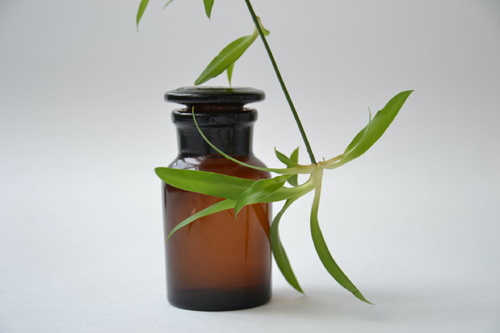Essential oils are what are used in aromatherapy. They provide many valuable benefits, however there are essential oils that are potentially hazardous. They are as follows.
Pennyroyal – an infusion of the leaves makes a safe digestive tea, but the essential oil can kill when taken internally.
Calamus – the European calamus contains a cancer causing terpene called thujone that is toxic to the nervous system. The American calamus is free of this chemical and is safe. The identity of the calamus oil is uncertain – so don’t use it internally.
Wormwood – oil has an active ingredient called absinthe which is mind altering. It also contains thujone. Don’t use the oil internally without the supervision of a herbalist.
Tansy – oil also contains thujone and is also very toxic.
Wormseed – was traditionally used to kill worms but the oil is highly toxic and has killed children who were given too much.
Wintergreen – the oil contains a toxic terpene called methyl salicylate which is in the same class as aspirin. People use it externally to relieve aches and pains of neuralgia and arthritis.
Camphor – The essential oil occurs in a semi-solid buttery state at room temperature (not as a liquid as most essential oils). Camphor is a single compound, a monoterpene, which is toxic to the nervous system causing mental confusion, nausea and vomiting when taken internally. Camphor is commonly used externally in products to clear the nasal passages, open the chest, stimulate circulation and relieve pain.
It is best to avoid using an essential oil internally – but always seek the advice of a herbalist before use internally. In addition do not use the following essential oils if you have:
· high blood pressure: hyssop, rosemary, sage or thyme.
· epilepsy: sweet fennel, hyssop, sage, rosemary and wormwood
· skin irritation: allspice, basil, bay, birch, bitter almond, black pepper, cassia, cinnamon leaf, cinnamon bark, citronella, clove bud, costus, cumin, fennel, fir needle, ginger, lemon, lemon grass, lemon verbena, melissa, myrrh, oak moss, orange peppermint, oregano, parsley seed, peppermint, pimento berry, pine, tagetes, tea tree, red and wile thyme and wintergreen.
The following essential oils will make your skin more sensitive to sunlight: all citrus oils, angelica, bergamot, lemon, mandarin, orange and lemon verbena.
If essential oils get into your eyes immediately flush with cold milk or vegetable oil to dilute. If stinging persists, seek medical attention. If undiluted essential oils get onto your hands use cream or vegetable oil to dilute and wash with soap and warm water. Repeat this process if necessary.
The following essential oils are safe to use on the skin during pregnancy:
- chamomile
- grapefruit
- jasmine
- lavender
- neroli
- rose
- ylang-ylang
Do not be scared to use essential oils, just learn these simple precautions and follow them. Always be cautious.
The Author:
Dr Jenny Tylee is an experienced health professional who is passionate about health and wellbeing. She believes that health is not just absence of disease and seeks to actively promote vitality and wellness through empowering others. She encourages people to improve their health by quit smoking, cleansing their body, taking essential vitamin and mineral supplement and many other methods, including herbal remedies.
